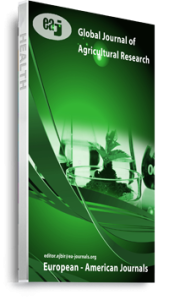The recent call for economic diversification through strengthening and consolidating the agricultural sector becomes imperative for the over dependent on the oil and gas sector. The level of agribusiness activities further reveals access to credit (finance) as serious concern to farmers in order to actualize the diversification agenda. In this light, this study analysed farmers’ accessibility to institutional credit at the Akwa Ibom State Integrated Farmers’ Credit Scheme. For the purpose of primary data collection, a questionnaire was designed and administered to each of the selected farmers in the communities. In addition, in-depth interview (IDI) was conducted with officials of the Akwa Ibom State Integrated Farmers’ Credit Scheme. Out of the 250 copies of the questionnaire administered to the respondents, 196 copies had valid responses and were found useful for the analysis representing a response rate of 78.4 per cent, composed of 79 (40.3%) credit beneficiaries and 117 (59.7%) non-credit beneficiaries. This study employed both descriptive, inferential statistics and logistic regression model in analysing the data that were collected. The study further indicated that the farmers had relatively adequate access to land as the majority (60.8%) of the respondents owned between 1-5 hectares of land, and about 30.2 per cent owned between 6-10 hectares of land while 1.0 per cent of the respondents had more than 10 hectares of land. Farmers with large farm sizes were more inclined to borrow as 42.3 per cent of farmers with large farm size applied for credit as against 7.1 per cent for small-scale farmers. The study also revealed that the credit accessed from the AISIFCS was adequate and majority (80.1%) of the beneficiaries stated that they did not receive the actual amount of loan requested. Also institutional credits had positive impact on agricultural productivity while age, gender, household size, membership of cooperative, and access to ICT did not significantly contribute to the likelihood of having access to credit from ASIFCS. Marital status, educational qualification, income, size of farm in hectares, distance to nearest bank in km, farming experience in years and access to extension services significantly contributed to the probability of having access to credit from the Akwa State Integrated Farmers’ Credit Scheme (AISIFCS). Therefore, the study showed that the main constraints to local farmer’s capacity in accessing institutional credits include lack of collaterals, high interest rate, high level of bureaucracy, and the mode of repayment among others.
Keywords: Accessibility, Credit Scheme, Farmers, Institutional, Integrated & Agricultural Productivity

